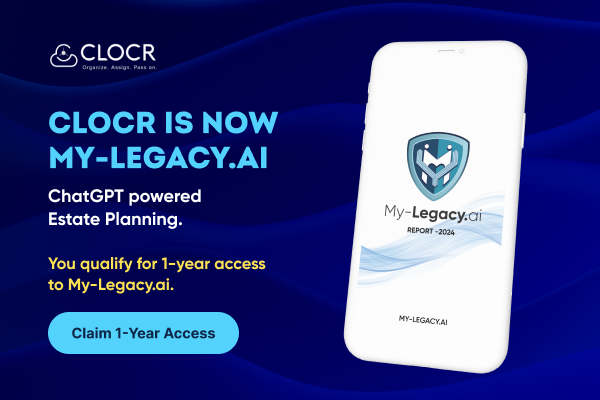Your assets today have expanded beyond the tangible ones to include even digital accounts and records. While drafting a Will now, it is not enough to include only traditional assets. However, you cannot include both types of assets in the same will either.
This is because, most often, primary Wills (with traditional assets) tend to go public. If you were to include your Digital Assets in the same Will, you could be risking the security of these accounts. So, what should you do?
The best option is to create a Digital Will exclusively for your Digital Assets. This will protect your rights and guarantee the safety of your assets. Your Digital Will does not have to be a formal document like your official Will. It can simply be a list of your online accounts with clear instructions on what you want to do with them if you were to pass on.
In this post, you will learn:
How to create a Digital Will
Your Digital Will is the secret to a strong Estate Plan. Steps to create a Digital Will are:
1. Create an inventory of your Digital Assets
Make a list of all your online accounts, their usernames and associated email addresses. Give special attention to those accounts that directly withdraw from your bank accounts.
2. Provide clear instructions
Draft detailed instructions on what you wish to do with each of your accounts. Check with respective organizations on their legacy policies (at the end of this post) before you decide to pass on the asset, delete it, duplicate it or perhaps memorialize it.
You might be interested in reading:
How to memorialize a Facebook Account
3. Appoint a Digital Executor
Appoint an executor to carry on your Digital Will. This could be a friend, family member or even a legal professional. Inform your executor in advance and let them know how they would discover the document when the situation arises. Mention the name of your executor and an alternate executor in your Digital Will.
4. Secure in a safe place
Storing your Digital Will is as important as creating it. Create multiple copies of your will and secure it a safe deposit box along with other important documents. Always have a digital copy of your Will under layers of protection in case the hardcopy gets lost or damaged. You can use Clocr’s Digital Vault to store your Digital Will.
How RUFADAA governs Fiduciary Access to Digital Assets?
The RUFADAA (Revised Uniform Fiduciary Access to Digital Assets Act) provides more agency to the deceased and limits the access an executor can have to the deceased person’s digital assets. Primarily, under this, the executor does not have any authority over content of emails, tweets, chats, etc. unless explicitly mentioned in the Digital Will. Further, the executor would have to file petitions to gain access to other Digital Assets.
You can check the status of RUFADAA in your state at ULC website.
Legacy Policies of Social Media Platforms and Online Accounts
PayPal allows your executor to delete your account after liquidating the remaining funds.
Twitter lets family members delete your account. They do not provide access to executors.
Ebay requires you to contact the support team to close the account.
Google allows you to appoint up to 10 Trusted Contacts who can download your Google data in case of account inactivity. The account also gets deleted after a year of inactivity.
Facebook provides access to your Legacy Contact to ‘memorize’ or close your account.
Now that you know how to create a Digital Will, sign up with Clocr and get all the help you need in creating your Digital Will.
You might be interested in reading:



